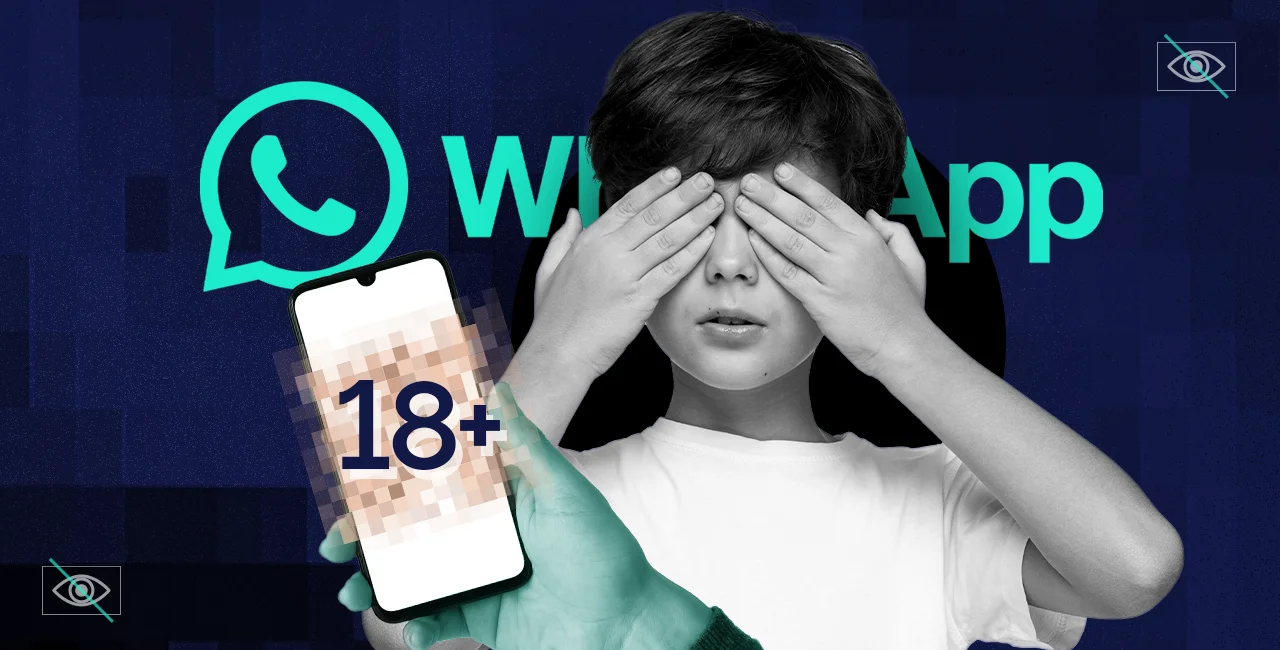The rise of WhatsApp groups circulating violent, pornographic content to young school children without their consent has parents and educators fearful for child safety.
A disturbing trend in which minors as young as 10 or 11 years old are being sent extremely graphic content via WhatsApp groups has prompted concern among Czech law enforcement and educators about the online safety and psychological well-being of the children involved.
The issue first caught the attention of police after a teacher in the Kutná Hora area reported being added to such a group. Further investigation by news site Deník N revealed that students in other regions, including Prague, have been added without their consent to groups circulating brutal videos depicting murders or suicides as well as pornography and Nazi propaganda.
Identities of admins or group owners unknown
Deník N's investigation has shown that the identities of the administrators (or owners) of these groups are often unknown.
The WhatsApp groups typically boast hundreds of members under various names like "Add more people" and "Add as many people as possible." Children extend invitations to each other across different platforms, and in some instances, they are approached by strangers.
Additionally, students may find themselves added to a group based on their phone number by an existing member. This situation leaves them in a group where content is unregulated, and their phone numbers are publicly displayed, making them susceptible to contact by strangers.
Even more troubling is that some children encounter threats or pressure to stay in these groups even after attempting to leave. This coercion results in them either rejoining the group or being added back without their consent. Parents have even reported instances of their children receiving calls from foreign numbers, raising additional concerns about their safety.
Cybersecurity expert Kamil Kopecký, a professor at Palacký University in Olomouc and head of the nation’s E-Security project believes that the groups are most likely created by adults in foreign countries and are being used as a tool to maliciously interact with the children. One parent, for example, found a survey on one of the WhatsApp chats that asked participants where they lived.
The trend has reached Prague schools
As authorities launch investigations into these groups, suspecting criminal activity related to child pornography, schools are also taking measures to address the issue, informing parents and students about the dangers and initiating discussions on online safety.
The principal of the Slovenská school in Vinohrady confirmed to Deník N that the school held a lecture on this topic during which one parent said his children and some of their classmates were victims of chain invitations to groups with pornographic or violent content.
An expat parent told us that their child’s school, a private school in Prague 4, had also notified parents of the existence of these groups and asked them to be on alert.
How should parents respond?
As the investigations continue, cybersecurity experts have highlighted the emergence of similar cases not only on WhatsApp but also on social media platforms like Discord and Telegram.
The E-Security project has reported an increase in such cases involving graphic material on WhatsApp, emphasizing the need for vigilance and parental guidance regarding online activities.
Advice from Czech police to students and minors
- Don't join unknown groups on WhatsApp or other communication applications.
- Don't hide inappropriate content from parents or teachers and don't delete it. Pass the information on to parents, teachers, who will report the matter to the police.
- Adjust your settings within the WhatsApp application: Settings - Privacy and Groups - limit who can add you to the group.
Jan Kulhánek, a psychotherapist speaking to Deník N, stresses the importance of not scolding children, but rather sitting them down and trying to learn how they came to be a part of the group.
Kulhánek also tells parents to check in with their kids about the importance of online safety, adding that children should under no circumstance communicate with strangers.
Recommendations from Czech police for parents
- Reinforce parental supervision and setting rules on internet use.
- Secure your child's computer with a parental control program (Google Family Link, Microsoft Family Safety, Kaspersky Safe Kids, Norton Online Family).
- Prohibit children from sending personal photos to unknown people.
- If someone tries to abuse or blackmail a child over the internet, report the case to the police immediately.
The lack of content control within these groups coupled with the public display of phone numbers makes children susceptible to contact from strangers, posing a significant safety risk, authorities say.
Spokesperson for the Central Bohemian Police Pavel Truxa said that “practically anyone” could join the groups, and that children often add their peers to these groups just because they are told to do so.
The alarming trend of explicit content circulating in these WhatsApp groups, particularly impacting minors, calls for urgent action from authorities, teachers, and parents to ensure the safety and well-being of children in online spaces.












 Reading time: 4 minutes
Reading time: 4 minutes 




























